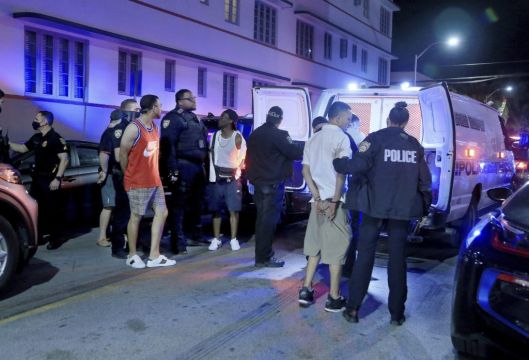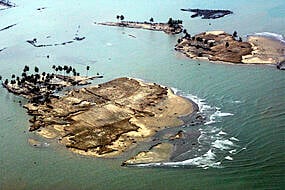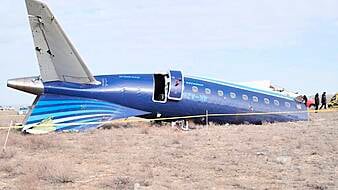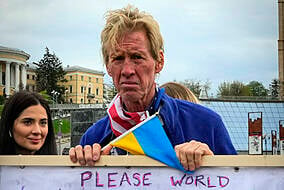Florida’s Miami Beach has declared a state of emergency after more than 1,000 arrests during an unruly spring break the city fears is a serious threat to public safety.
During a last-minute meeting on Sunday, city officials voted to extend a highly unusual 8pm curfew for another week along famed South Beach, with the possibility of extending it until April 12 if needed.
Officials stressed the crowd was not comprised of university students but adults looking to let loose in one of the few states fully open during the pandemic.

After days of partying, including several confrontations with police, Miami Beach officials brought in a curfew on Saturday from 8pm until 6am, forcing restaurants to stop outdoor seating entirely during the three-day emergency period and encouraging local businesses to voluntarily shut down.
More than half of the more than 1,000 arrests were from out of state, said city manager Raul Aguila, adding many were present “to engage in lawlessness and an anything goes party attitude”.
He also noted that the crowds were not eating at restaurants or patronising businesses generating badly needed tourism dollars, but merely congregating by the thousands in the street.
Officers in bullet proof vests dispersed pepper spray balls on Saturday evening into a defiant, but mostly non-violent crowd, refusing to submit to the curfew that had only been enacted four hours earlier. Some people responded by jumping on top of cars, twerking and throwing money into the air.

Miami Beach Mayor Dan Gelber said he has trouble sleeping at night, worried about the out-of-control parties.
“When hundreds of people are running through the streets panicked, you realize that’s not something that a police force can control,” he said during a commission meeting on Sunday.
Local officials have struggled to enforce Covid rules. Florida has no statewide mask rules, limits on capacity or other such restrictions, courtesy of Republican Governor Ron DeSantis’s pro-business stance.
“I think there are very few places that have been open as our state have been open,” said Mr Gelber. “We’re in the middle of a pandemic. The virus is still very present in our community. We have 1,000 infections a day on most days.”







